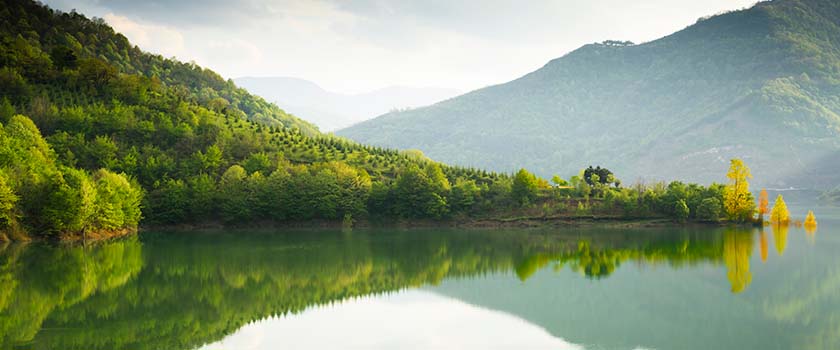Following up on its wish list published last month, UBP’s Impact team has looked at the outcomes of COP28, specifically as regards a call to action, the climate and nature agendas, adaptation, fossil fuels, and (once again) carbon pricing.
1) A call to further action: in-line to disappointing
- This COP marked the end of the first “global stocktake”, a process for reviewing the implementation of the Paris Agreement that was agreed at COP21. This is an assessment of our collective progress towards the long-term goals of the Agreement. It happens every five years and will play an important role in determining the next round of climate targets.
- Against this backdrop, it was good to see that the text was still aiming for a 1.5°C level of warming, something that is increasingly difficult to envisage but that many see as a sign of ambition.
- It was also great to see fossil fuels mentioned specifically for the first time, with a goal to “transition away [from them] in energy systems”. This is not the “phasing-out” that many activists were hoping for, but it is progress in the context of the COP.
- Overall, this will be seen as disappointing by many. There was no convincing increase in the level of urgency or ambition at collective level, but we can hope that keeping the 1.5°C target will lead to stricter targets for the next round of climate goals (i.e. the so-called “nationally determined contributions”).
2) Continued convergence of the climate and nature agendas: positive first steps
- The narrative on the link between nature and climate has become stronger since COP27, and this was cemented by a dedicated nature day for the first time at COP28. A joint statement on “climate, nature and planet” (signed by 15 nations including the UK and the US) calls for countries to meet the Paris Agreement targets along with the Global Biodiversity Framework ambitions. This is great progress in terms of how capital will be allocated to solutions.
- It was also encouraging to see the focus on the agri-food system, given how significant a contribution this sector makes to both GHG emissions and nature loss. The Declaration on Food, signed by more than 130 nations on the second day of COP28, was an important moment, particularly given the strong presence of lobbyists from the food sector. However, as important as this is, the conversation stopped short of placing the agri-food sector in the same space as fossil fuels in terms of climate change. As yet, there is no real push for targets, any more than there is an acceptance of the problem and the need for reform.
3) Some substance on what “A Global Goal on Adaptation” means: early progress, but vague commitments
- The Loss and Damage fund agreement was an early positive for COP28, which came as a surprise to many observers. The fund will be housed within the World Bank for at least four years, but will function as an independent entity with a board of 26 members. The bad news came from the funding side, as the total commitments gathered amounted to less than USD 800 million by the end of the conference, something that is well below any estimate of what is required.
- On the more general issue of adaptation, there was much less clarity. We were expecting more details on the definition of the “global goal on adaptation” (GGA) that has lagged behind the discussions on mitigation since COP21. We did get a list of thematic goals (such as water, food, health, ecosystems and biodiversity), which will be useful for investors who want to invest in that space, but no precise quantitative targets were given, rather, these will be determined after a two-year work programme. Last, the ever-pressing issue of financing was postponed to another COP.
4) The end of subsidies for fossil fuels and specific sector targets: mixed
- The mention of fossil fuels was a success, but it should be noted that it was only in the context of “energy systems”, meaning it does not extend to industry or transport. The final text also mentions a “just, orderly and equitable” transition, meaning that each country can argue that it needs a different timetable, or can use energy security as a reason to slow down the transition.
- In addition to this, there was progress on methane, both in the final text and via the announcement of a private commitment by big oil companies to stop routine flaring and to eliminate leaks by 2030. There was also a mention of subsidies, again with several qualifications, and with little new substance, although a commitment to more transparency and the mention of a timeline are clear positives.
- Last, the ambition to triple renewable energy generation by 2030 is a concrete step forward that has already garnered the support of over 132 countries. This is a very positive signal and will support an industry that is now facing headwinds. To reach this goal, the vast majority of countries will have to significantly expand and develop their current plans. From a private sector perspective, the CEO of CDP (a leading NGO advocating for greater transparency in this field) pointed out that a mere 10% of disclosing companies have renewable energy targets, and a third do not use renewable energy at all, highlighting the urgent need for government action and policy in this domain.
5) Carbon pricing (again): delays (again) and a renewed focus on integrity
- The issue of carbon pricing was delayed again, with talks continuing next year in Azerbaijan. This is something we have previously seen in Madrid for this highly contentious area of the negotiations and came as no surprise. The gap between those who favour flexible voluntary standards and the countries pushing for a more rigorous approach is still wide.
- Partly as a consequence of this delay, the discussions on voluntary carbon markets regained some momentum. Despite recent controversies, there was a number of announcements in this area, from the creation of an Integrity Council to a joint statement by six European nations on their proposals to “prevent greenwashing and restore integrity in voluntary carbon markets”. We welcome the renewed insistence on integrity, as the current voluntary market is clearly not fit for purpose








